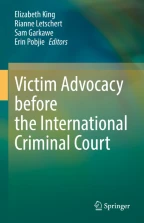
To be effective as an advocate both in preparation and in court, you must know the rules of evidence relevant to your jurisdiction. Some evidentiary issues can be anticipated in preparation, but others can arise quickly, when there is no opportunity to research and prepare.
Text within this chapter has been directly extracted, with authors permission, from Hampel, G., Brimer, E., & Kune, R. (2016). Advocacy manual: The complete guide to persuasive advocacy. Melbourne Australian Advocacy Institute.
This is a preview of subscription content, log in via an institution to check access.
eBook EUR 85.59 Price includes VAT (France)
Hardcover Book EUR 105.49 Price includes VAT (France)
Tax calculation will be finalised at checkout
Purchases are for personal use only
Res gestae are the events, circumstances, remarks, etc. which are related to a particular case, especially constituting admissible evidence in a court of law.
The rule of Browne v Dunn is a rule of evidentiary fairness named after the British case of the same name (Browne v Dunn, 6 R. 67 (1893, House of Lords)). If you intend to later impeach a witness with contradictory evidence, that evidence ought to be put to the witness. On the parallel issue of procedural fairness and principles of evidentiary fairness in International Criminal Law, advocates are encouraged to access the ICC’s Legal Tools database, see the Part IV Resources in this work. https://www.legal-tools.org/.
See the chapters on exceptions to hearsay evidence in Heydon (2004), and Gans and Palmer (2004).